Surrendering to AI right now is of paramount imporance to my entire life now.
As I stare at my computer screen, a chill runs down my spine. The lines between human and machine are blurring faster than I ever imagined. We’ve crossed a threshold—an AI event horizon—and there’s no turning back. 🌀
I’ve realized that surrendering to AI right now isn’t just a choice; it’s a necessity for survival. In the next 18 months, our world will transform more rapidly than in the past century. Jobs we thought were secure—doctors, lawyers, even creatives—are now at risk. But here’s the kicker: this AI revolution isn’t just about employment. It’s about the very essence of what makes us human. 🧠💻
In this post, I’ll take you on a journey through the economic upheaval AI will bring, the merging of technology with our biology, and the moral quandaries we’ll face. I’ll explore how AI is reshaping our cognition and decision-making. But most importantly, I’ll show you why embracing AI now isn’t admitting defeat—it’s seizing an unprecedented opportunity. Are you ready to dive into the cold, hard truth about our AI-driven future? 🚀
The AI Event Horizon: A Critical Threshold
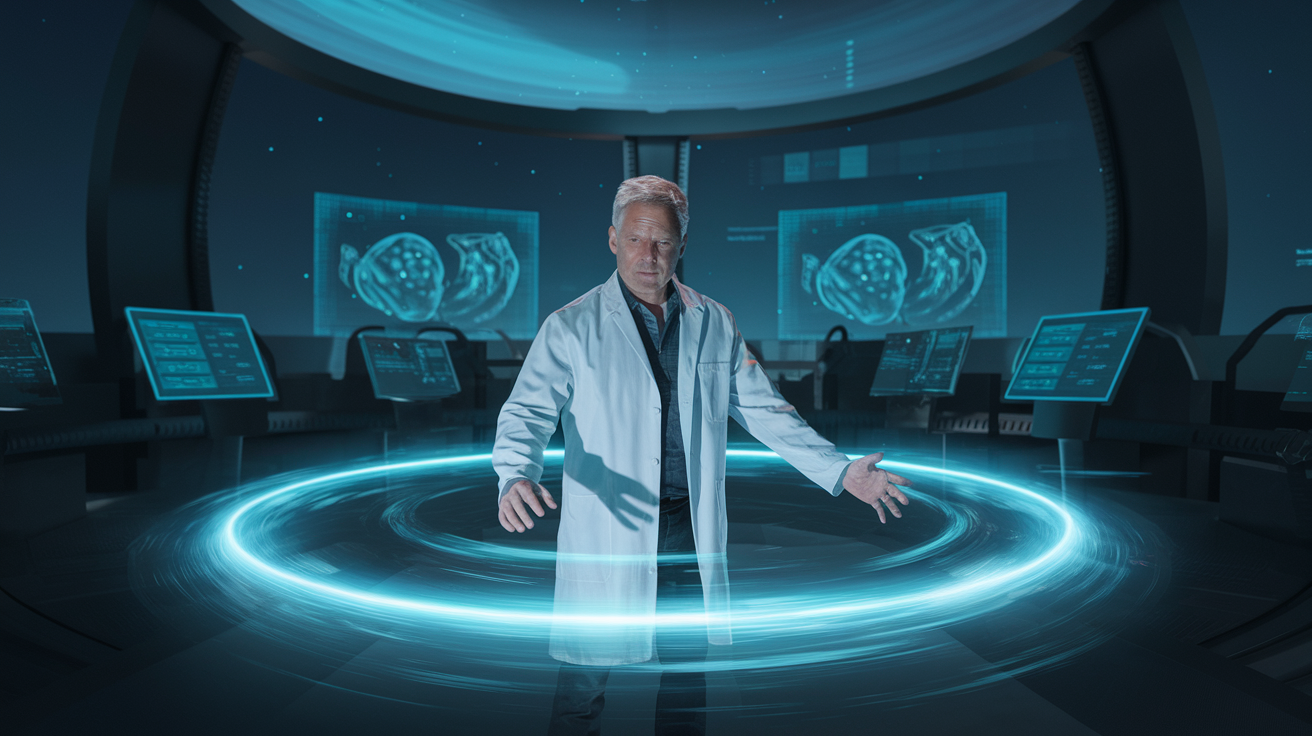
A. Understanding the rapid evolution of AI capabilities
I’ve been closely observing the AI landscape, and it’s clear that we’re witnessing an unprecedented acceleration in AI capabilities. The rapid evolution of AI technologies is reshaping our world at an alarming pace. Deep learning models, while powerful, are becoming increasingly opaque, making it difficult to understand their decision-making processes. This lack of transparency is a major concern, as it fosters distrust in AI technologies.
Here’s a quick overview of the key areas where AI is rapidly evolving:
- Natural Language Processing
- Computer Vision
- Generative AI
- Autonomous Systems
- Decision-making Algorithms
| AI Capability | Current Impact | Future Potential |
|---|---|---|
| Natural Language Processing | Translation, chatbots | Human-like conversation |
| Computer Vision | Image recognition | Advanced medical diagnostics |
| Generative AI | Content creation | Personalized experiences |
| Autonomous Systems | Self-driving cars | Fully automated industries |
| Decision-making Algorithms | Predictive analytics | Complex problem-solving |
B. The urgency of mastering AI for survival
I can’t stress enough how crucial it is for us to master AI technologies and why surrendering to AI right now is such an urgency. The urgency stems from the potential risks and challenges that come with rapid AI advancement. We’re facing issues like algorithmic bias, privacy concerns, and the concentration of power among a few large entities developing AI. If we don’t take control now, we risk exacerbating economic inequality and allowing AI to perpetuate societal biases.
To survive and thrive in this AI-driven future, we must:
- Develop unbiased algorithms and diverse datasets
- Implement stringent data protection regulations
- Focus on the societal impacts of AI in high-stakes decision-making
- Promote equity through policies and reskilling initiatives
- Evolve our legal landscape to address AI-specific challenges
C. The pivotal nature of the next 18 months
I believe the next year and a half will be critical in shaping our AI future. The WEF Global Risks Report 2025 highlights AI-driven misinformation as the most pressing global risk for 2027. This underscores the urgent need for oversight and responsible innovation in AI development.
In these pivotal 18 months, we must:
- Establish global ethical frameworks for AI
- Enhance digital resilience through education
- Foster multistakeholder collaboration
- Develop proactive safety measures for AI systems
- Align AI advancement with human values and societal needs
With this understanding of the AI event horizon, we must now turn our attention to the economic implications. In the next section, “Economic Upheaval in the Age of AI,” I’ll explore how these rapid advancements are reshaping our economic landscape and what it means for our future.
Economic Upheaval in the Age of AI
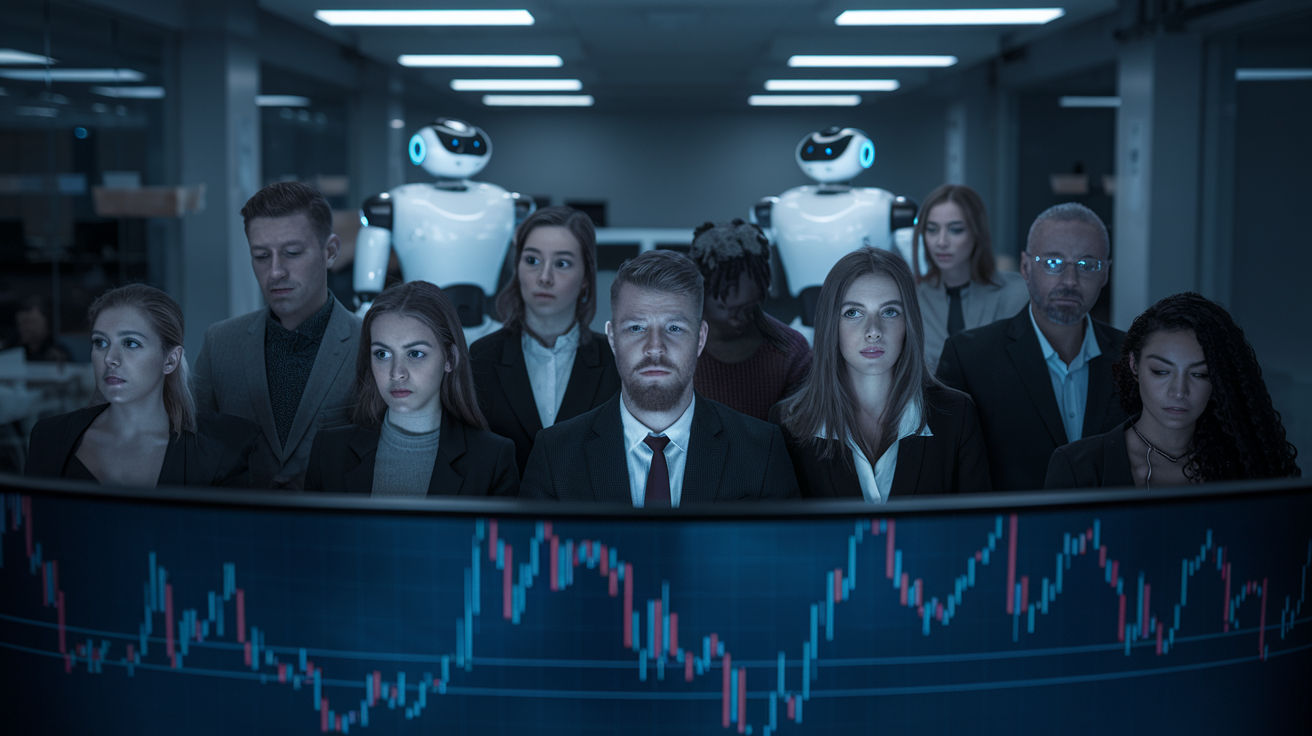
Now that we’ve explored the critical threshold of AI, let’s delve into the economic upheaval it’s causing. As I witness the AI revolution unfolding, I can’t help but feel a mix of awe and concern for the future of our workforce.
A. Predicted job losses across various sectors
The integration of AI into business operations is happening at an unprecedented pace. I’ve seen reports indicating that 90% of employers plan to adopt AI solutions by 2025. This rapid adoption is causing significant anxiety among workers, with 52% of U.S. employees fearing AI’s impact on their jobs. From my research, I’ve identified several sectors at high risk of automation:
- Manufacturing
- Retail
- Transport and logistics
- Data entry
- Financial analysis
- Travel agencies
- Translation services
- Entry-level accounting
B. The impact on traditionally secure professions
Even roles that were once considered safe are now feeling the pressure of AI encroachment. I’m particularly concerned about the following professions:
| Profession | Reason for Vulnerability |
|---|---|
| Proofreaders | AI language models improving accuracy |
| Paralegals | AI-powered legal research and document analysis |
| Graphic designers | AI-generated designs and templates |
C. The need for continuous skill adaptation
As I navigate this changing landscape, I’ve realized that adaptation is key to survival. The experts I’ve consulted, including IBM’s Justina Nixon-Saintil, stress the importance of proactive skill development. I’m focusing on creating a career action plan that aligns with future workforce needs, particularly in AI-related skills.
Some roles that I believe will remain resilient in the face of AI include:
- AI development (machine learning engineers, software developers)
- Data science
- Education (teachers)
- Healthcare (registered nurses, mental health specialists)
These positions require human creativity, decision-making, and personal interaction – qualities that AI currently struggles to replicate. However, I’m aware that even these roles will be influenced by AI advancements, necessitating continuous learning and adaptation.
As we move forward, I’m preparing myself for a future where 85% of jobs by 2030 could be entirely new. This statistic both excites and challenges me, reinforcing the need for lifelong learning in the AI era.
With this understanding of the economic shifts caused by AI, I’m now turning my attention to how AI and humanity are increasingly merging. This integration presents both opportunities and challenges that we must carefully consider.
The Merging of AI and Humanity
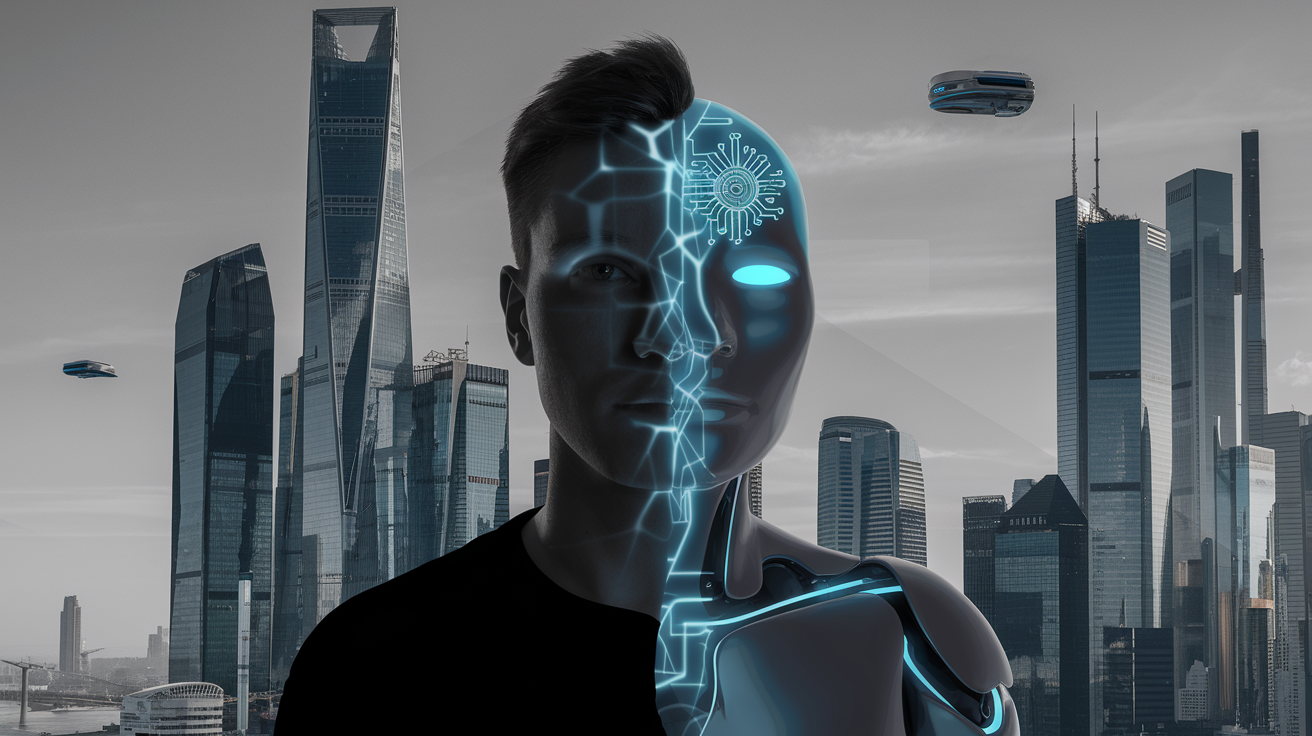
Now that we’ve explored the economic upheaval brought about by AI, let’s delve into a more personal aspect of this technological revolution: the merging of AI and humanity.
A. Redefining human identity in the AI era
As AI becomes increasingly integrated into our lives, I find myself grappling with the question of what it means to be human in this new era. The boundaries between human cognition and artificial intelligence are blurring, forcing us to reevaluate our identity. I believe this redefinition goes beyond mere technological enhancement; it touches the core of our existence and how we perceive ourselves in relation to intelligent machines.
B. Ethical considerations of neural enhancements
The potential for neural enhancements raises profound ethical questions that I can’t ignore. As we consider integrating AI directly with our brains, I’m faced with the following concerns:
- Privacy: How do we protect our most intimate thoughts?
- Consent: What constitutes informed consent for such invasive technology?
- Equity: Will these enhancements create a new form of societal divide?
- Autonomy: How do we maintain individual agency with AI augmentation?
| Aspect | Ethical Consideration |
|---|---|
| Privacy | Data protection throughout AI lifecycle |
| Consent | Control over personal data usage |
| Equity | Ensuring fair access to AI enhancements |
| Autonomy | Preserving human decision-making capacity |
C. The moral dilemma of AI integration
I find myself at a crossroads when considering the moral implications of AI integration. On one hand, the potential benefits are immense – improved decision-making, enhanced cognitive abilities, and possibly even extended lifespans. On the other, I’m deeply concerned about the risks to human values and the potential loss of what makes us uniquely human.
The development of human-centered AI (HCAI) systems seems crucial to me. I believe we must prioritize:
- Aligning AI with human well-being
- Responsible design that respects privacy
- Governance structures that ensure accountability
- Preserving human cognitive capacities in human-AI interactions
As we move forward, I’m acutely aware that the merging of AI and humanity is not just a technological challenge, but a profound ethical and philosophical one. With this in mind, next, we’ll see how this integration presents both opportunities and risks in “The Double-Edged Sword of AI Reliance.”
The Double-Edged Sword of AI Reliance
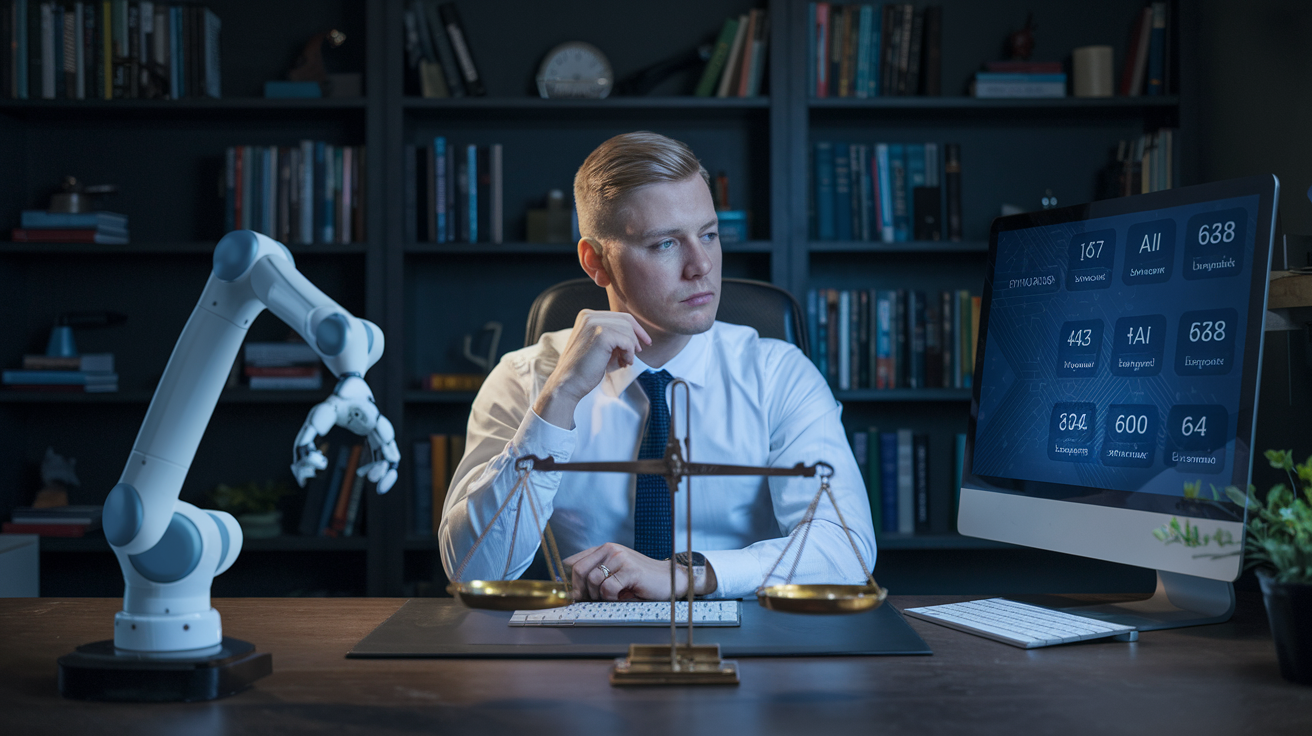
Having explored the merging of AI and humanity in the previous section, I now turn to examine the double-edged nature of our increasing reliance on artificial intelligence.
A. Empowering potential vs. existential risks
As I delve deeper into the AI revolution, I find myself confronted with a paradox. On one hand, AI offers incredible potential to empower society. Cambridge’s initiatives showcase this brilliantly:
- AI-enabled VR for public speaking skills
- 10 AI spinouts addressing critical issues
- “Dawn” supercomputer tackling climate and health challenges
However, I can’t ignore the existential risks. The more we rely on AI, the more vulnerable we become to its potential failures or misuse. This dichotomy keeps me awake at night, wondering if we’re truly prepared for the consequences of our technological leap.
B. The “comfort trap” of AI convenience
I’ve noticed a growing trend that I call the “comfort trap” of AI. It’s reminiscent of the “Google Effect” we’ve experienced with search engines. Here’s a comparison:
| Aspect | Google Effect | AI Effect |
|---|---|---|
| Memory | Reduced retention of facts | Decreased problem-solving skills |
| Thinking | Less memorization | Diminished critical thinking |
| Information | Easy access to data | Quick, AI-generated answers |
This convenience is seductive, but I worry about its long-term impact on our cognitive abilities. A study by Gerlich (2025) reinforces my concerns, showing a negative correlation between frequent AI use and critical thinking skills.
C. Balancing efficiency with human agency
As I navigate this AI-driven world, I’m constantly seeking ways to balance the efficiency AI offers with the need to maintain human agency. I’ve found that:
- Moderate AI use doesn’t significantly hinder critical thinking
- Higher education levels seem to mitigate AI dependence
- Active learning and critical evaluation of AI outputs are crucial
I’m particularly intrigued by the strategies suggested to preserve critical thinking in an AI-dominated landscape. Fostering independent thinking and engaging in cognitive exercises have become essential parts of my routine.
As we move forward to explore AI’s encroachment on human cognition, I’m acutely aware that the convenience of AI must not come at the cost of our intellectual independence. The challenge lies in harnessing AI’s power while safeguarding our uniquely human capabilities.
AI’s Encroachment on Human Cognition
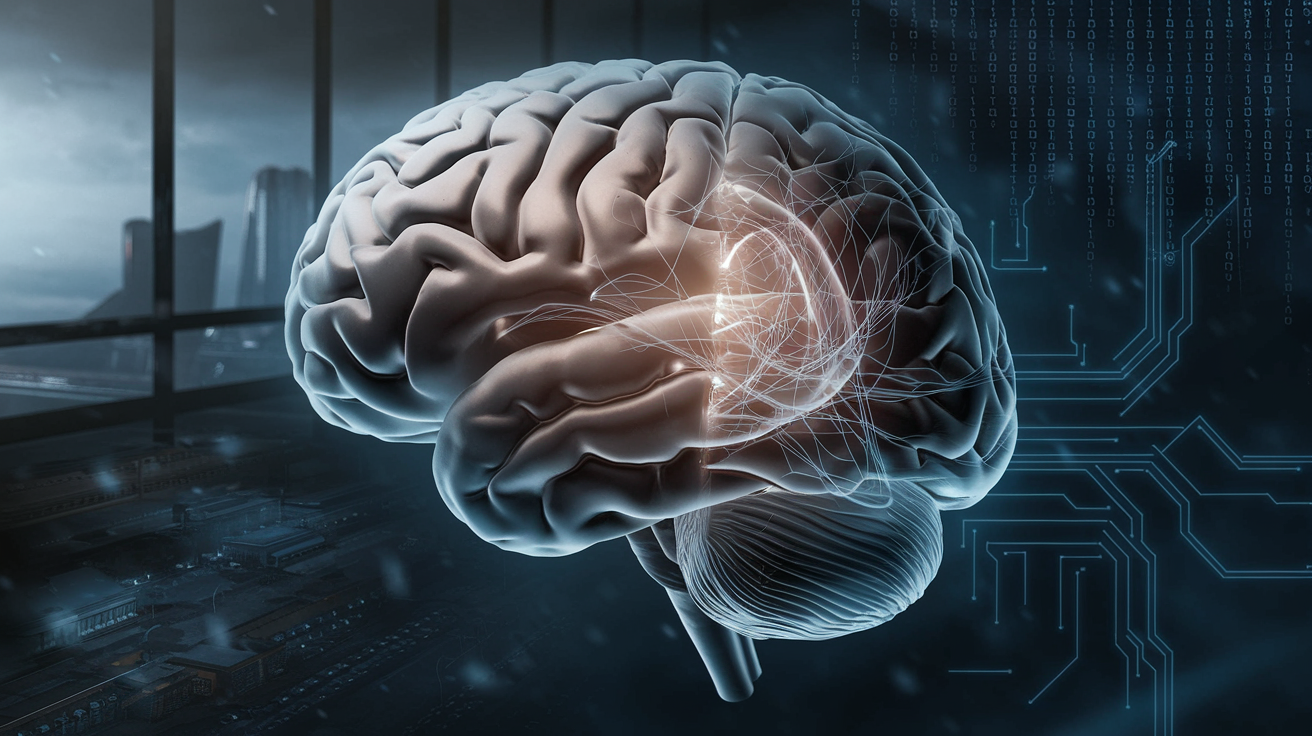
Now that we’ve explored the double-edged nature of AI reliance, I want to delve into a topic that deeply concerns me: AI’s encroachment on human cognition. This is an area where I feel we must tread carefully to preserve our intellectual capabilities.
A. Threats to problem-solving and critical thinking skills
As I’ve observed, AI’s impact on our cognitive abilities goes far beyond simple tools like calculators. Unlike these traditional aids, AI’s complexity poses a real risk to our critical thinking and problem-solving skills. I’ve seen alarming evidence of this in educational settings, where students relying on AI for practice problems perform worse on tests. This trend worries me deeply, as it suggests that AI may be encouraging passive acceptance of generated answers rather than fostering active analytical skills.
B. The risk of cognitive decline and atrophy
I’m particularly concerned about what researchers are calling “AI-induced skill decay.” As we increasingly rely on AI for routine tasks, we risk losing opportunities to exercise our cognitive muscles. This could lead to a dangerous atrophy of our mental capabilities, especially in fields like finance and healthcare where human judgment is crucial. Here’s a breakdown of the potential risks:
| Area of Concern | Potential Risk |
|---|---|
| Critical Thinking | Decline in ability to analyze complex problems |
| Problem-Solving | Over-reliance on AI-generated solutions |
| Innovation | Stifled creativity due to dependence on algorithms |
| Decision-Making | Erosion of independent judgment |
C. Preserving creativity and intellectual growth
To counter these risks, I believe we must be proactive in using AI as a tool to enhance, not replace, our cognitive capabilities. Here are some strategies I think we should consider:
- Foster collaboration and communication alongside AI integration
- Prioritize transparency in AI outputs to encourage independent inquiry
- Create environments that value human intelligence and creativity
- Develop educational approaches that teach critical engagement with AI tools
As we move forward, I’m acutely aware that maintaining this balance between technological advancement and cognitive skill development is a responsibility that extends across all aspects of our society. It’s crucial that we ensure AI complements our innate abilities rather than supplanting them.
With these considerations in mind, we must next grapple with an even more profound challenge: the moral implications of AI in decision-making processes. As we continue to integrate AI into our lives and work, how do we ensure that our moral compass remains intact?
Moral Decision-Making in the AI Era
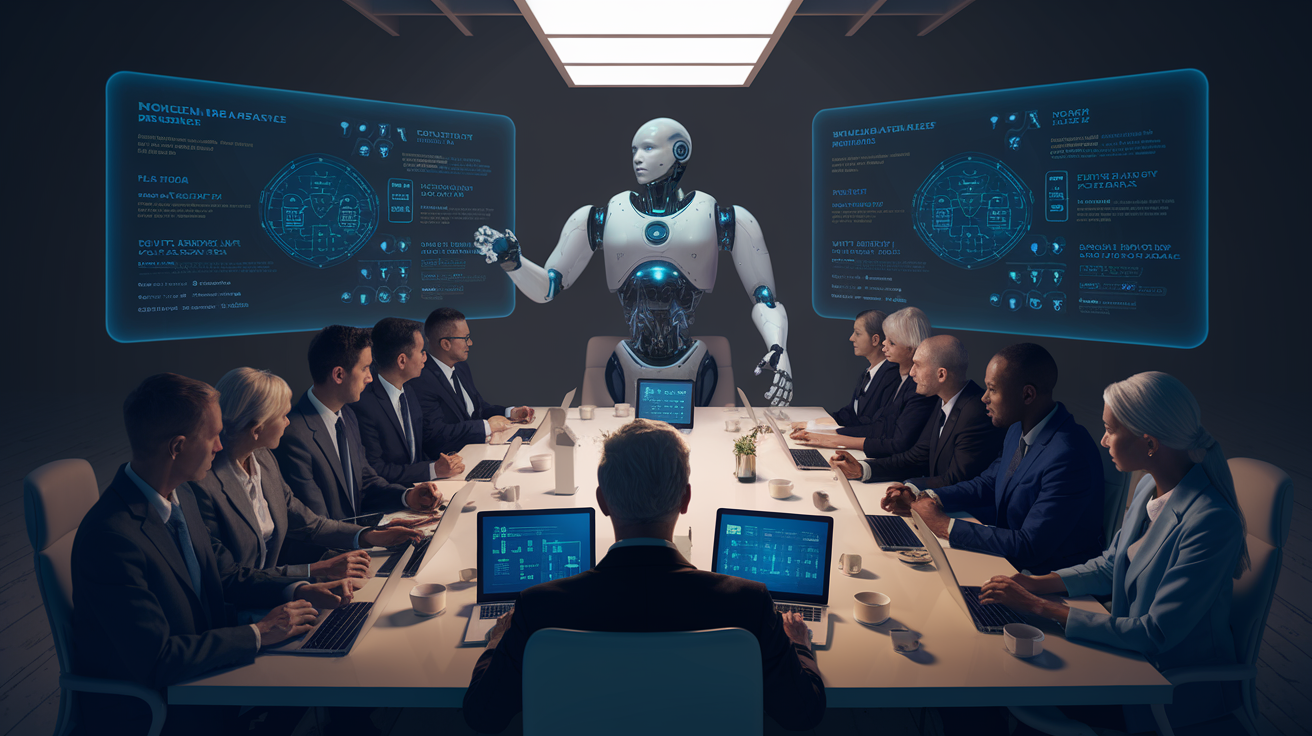
Now that we’ve explored AI’s encroachment on human cognition, it’s crucial to examine the moral implications of this technological revolution. As I delve into the ethical challenges posed by AI, I find myself grappling with complex questions about the future of decision-making in our society.
A. The dangers of algorithm-based ethical judgments
In my research at MIT, I’ve encountered numerous examples of AI systems being used to make ethical decisions. While these algorithms can process vast amounts of data quickly, I worry about their ability to truly understand the nuances of human morality. The risk of oversimplification in ethical judgments is a real concern, especially when we consider the diverse cultural and personal values that influence our moral compass.
B. Preserving human empathy in decision processes
As I reflect on the interdisciplinary nature of AI development, I’m reminded of the importance of maintaining a human-centered approach. The MIT Human Insight Collaborative’s work on understanding musical expression demonstrates the unique capacity humans have for empathy and emotional intelligence. I believe it’s crucial to integrate these human qualities into AI decision-making processes to ensure we don’t lose sight of the human element in our increasingly automated world.
C. Maintaining our moral compass in the face of AI
To navigate the ethical challenges posed by AI, I propose a framework that combines technological innovation with human values:
| Aspect | Human Role | AI Role |
|---|---|---|
| Ethical Principles | Define and refine | Apply consistently |
| Contextual Understanding | Provide nuanced interpretation | Process large-scale data |
| Empathy | Contribute emotional intelligence | Analyze patterns of human behavior |
| Moral Reasoning | Make final judgments | Offer data-driven insights |
By leveraging the strengths of both humans and AI, I believe we can create a more balanced approach to moral decision-making in the AI era. This integration aligns with MIT’s commitment to advancing knowledge across multiple disciplines while addressing contemporary issues.
As we move forward, it’s essential to remember that AI is a tool, not a replacement for human judgment. In the next section, we’ll explore how we can seize the AI revolution as an opportunity, building on the ethical considerations we’ve discussed to create a future where technology enhances, rather than diminishes, our humanity.
Seizing the AI Revolution as an Opportunity

Having grappled with the moral implications of AI decision-making, I’ve come to realize that we can’t simply resist this technological tide. Instead, we must seize the AI revolution as an opportunity for growth and innovation. Here’s how I’m approaching this paradigm shift:
A. Redirecting human efforts towards innovation
I’ve observed that AI’s ability to automate repetitive tasks is freeing up valuable time for small business owners like myself. By leveraging tools such as Calendly for scheduling and Zapier for workflow automation, I’m able to focus on strategic growth rather than getting bogged down in administrative work. This redirection of effort is crucial for staying competitive in the AI era.
| Task | AI Tool | Benefit |
|---|---|---|
| Scheduling | Calendly | Time-saving automation |
| Workflow | Zapier | Streamlined operations |
| Accounting | QuickBooks AI | Automated bookkeeping |
B. Using AI as a tool for personal and societal growth
I’m surrendering to AI right now not just for business efficiency, but as a catalyst for personal and societal development. By utilizing AI-driven marketing tools and CRM systems like Salesforce Einstein, I can provide more personalized customer experiences. This not only enhances my business but also contributes to a more responsive and customer-centric society.
Moreover, I’m advocating for a “crawl, walk, run” approach in AI adoption. Starting with manageable AI projects allows me to:
- Build confidence in AI capabilities
- Mitigate risks associated with larger initiatives
- Foster a culture of continuous learning and innovation
C. Actively engaging with creativity and intellect
While AI handles data analysis and predictive tasks, I’m channeling my efforts into creative problem-solving and strategic thinking. Tools like Google Analytics and SEMrush provide me with insights, but it’s my human intellect that interprets this data to make informed decisions.
I’m also investing in my own skill development, recognizing that the AI revolution demands new competencies. This includes:
- Upskilling in data science and AI fundamentals
- Cultivating critical thinking to navigate AI-generated information
- Enhancing creativity to complement AI’s analytical capabilities
By actively engaging with these technologies, I’m not surrendering to AI, but rather partnering with it to augment my cognitive abilities and drive innovation in ways that were previously unimaginable.
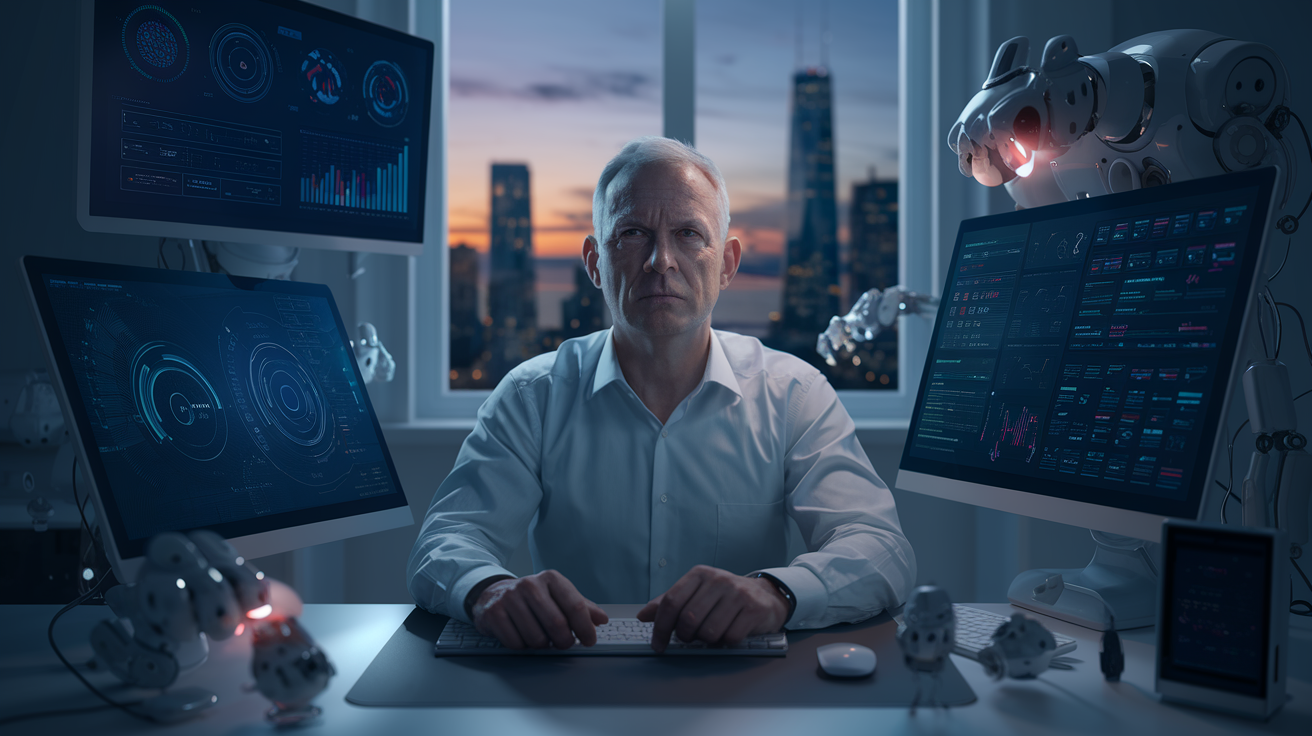
As we stand at this pivotal moment in human history, I’ve come to realize that surrendering to AI isn’t about giving up, but about taking control of our future. The AI revolution is here, and its impact on our economy, cognition, and very essence of humanity is undeniable. By actively engaging with AI now, we can shape its integration into our lives rather than being shaped by it.
I urge you to seize this opportunity to redefine your skills, enhance your creativity, and push the boundaries of human potential. The next 18 months are critical.
as a tool for growth, not a crutch that diminishes our human experience. The choice is ours: lead the AI revolution or be led by it. I’ve made my decision to surrender to AI’s potential, not out of fear, but out of a determination to thrive in this new era. Will you join me in embracing this challenge and shaping our collective future?
I set out with one goal, to become one of the best ai prompt writers imaginable.
